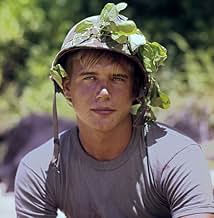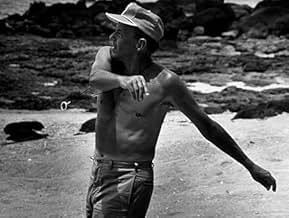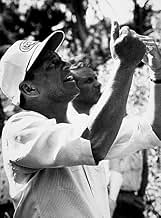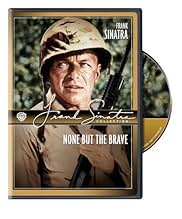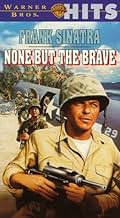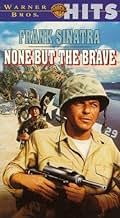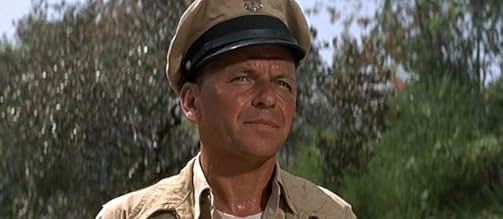IMDb RATING
6.4/10
2.2K
YOUR RATING
During WW2, a platoon of Marines crash-lands on a tiny Pacific island occupied by a small Japanese unit.During WW2, a platoon of Marines crash-lands on a tiny Pacific island occupied by a small Japanese unit.During WW2, a platoon of Marines crash-lands on a tiny Pacific island occupied by a small Japanese unit.
Takeshi Katô
- Sgt. Tamura
- (as Takeshi Kato)
Tôru Ibuki
- Pvt. Arikawa
- (as Toru Ibuki)
Ryûchô Shumpûtei
- Pvt. Okuda
- (as Ryucho Shunputei)
- Director
- Writers
- All cast & crew
- Production, box office & more at IMDbPro
Storyline
Did you know
- TriviaDuring downtime whilst shooting the picture, Brad Dexter saved Frank Sinatra from drowning when he dived into the ocean and rescued the floundering singer.
- GoofsOne African American belongs to the USMC platoon. At this time, US military was not an integrated military and Blacks were segregated. This black Marine couldn't have been a member of this platoon.
- Quotes
Lt. Kuroki: Our island is a little chunk of coral in the Sakhalin archipelago. It is nameless and the Great War beyond its horizons ignores us, for we are the expendables of an amphibious landing, left to God, a forgotten outpost of the Imperial Japanese Army.
- Crazy creditsThe line NOBODY EVER WINS appears in place of "The End" just before the end credits start, which is appropriate given the film's anti-war message.
- Alternate versionsSome prints of the film do not include subtitles for any of the Japanese sequences.
- ConnectionsFeatured in Stars of the Silver Screen: Frank Sinatra (2011)
Featured review
an old idea done better in many other movies, i.e opposing sides find themselves in the same boat and fight and wonder why; odd part if the several misplaced performances; start with sinatra doing the typical club singer vegas performance except in uniform in the south pacific; follow that with the most bizarre- tommy sands, then a teen idol singer (oh, and sinatra's son in law) who was a little person with a little voice somehow not realizing what a fool he was acting by pretending to be a big tough marine booming out orders; it's just laughable; anyway, the best version of this is lee marvin in hell in the pacific; still a war movie but thoughtful, interestingly shot
Details
- Runtime1 hour 46 minutes
- Aspect ratio
- 2.35 : 1
Contribute to this page
Suggest an edit or add missing content




